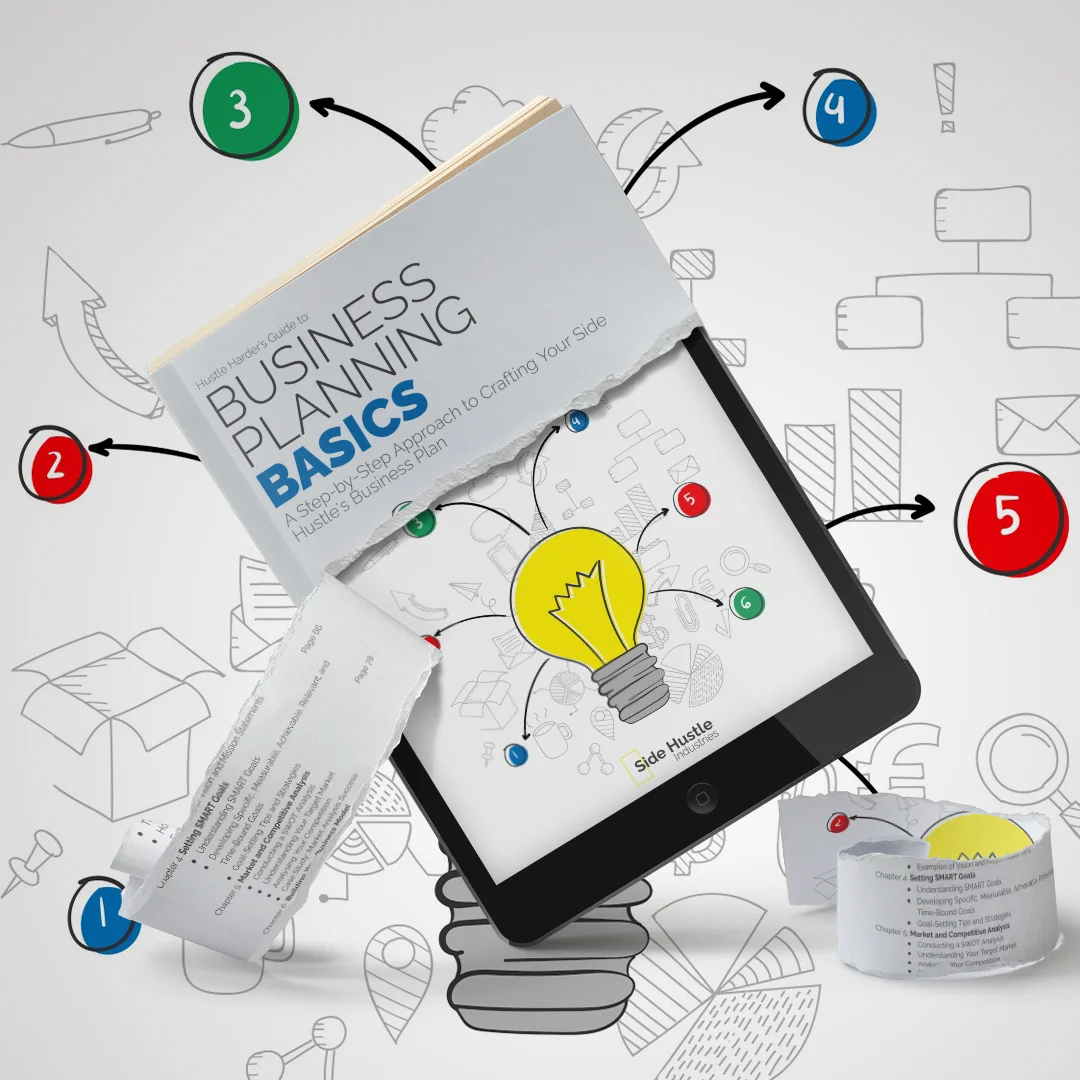
When launching your side hustle or startup, one of the first and most critical tasks is estimating your startup costs. Accurately assessing the funds you’ll need to get your business off the ground is essential for effective financial planning and ensuring that you secure enough capital to cover your initial expenses. In this blog, we’ll explore how to estimate your startup costs and provide guidance on managing them effectively.
Why Estimating Startup Costs is Crucial
Estimating startup costs is a fundamental step in your business planning process for several reasons:
- Capital Requirement: It helps you determine how much funding you need to start and operate your business until it becomes self-sustaining.
- Investor Confidence: Investors, whether they are lenders, venture capitalists, or angel investors, will want to see a clear and well-documented estimate of your startup costs to evaluate the financial viability of your business.
- Budget Management: Accurate estimates guide you in managing your financial resources efficiently, ensuring you have enough money to cover initial expenses without running into cash flow problems.
- Business Planning: Startup cost estimates provide the basis for your financial projections and business plan. They help you create realistic financial forecasts.

Types of Startup Costs
Startup costs can be categorised into two main types:
- One-time Costs: These are expenses you incur only once, typically before you officially start your business. One-time costs include legal fees for business registration, logo and website design, equipment purchases, and initial marketing expenses.
- Ongoing Costs: Ongoing costs are those that you’ll need to cover regularly as part of your day-to-day business operations. These include rent, utilities, employee salaries, and marketing and advertising expenses.
To estimate your startup costs accurately, you’ll need to account for both one-time and ongoing expenses.
Steps to Estimate Startup Costs
Follow these steps to estimate your startup costs effectively:
Identify All Expenses:
Begin by making a comprehensive list of all the expenses your startup will incur. Think about everything you’ll need to get your business up and running and keep it running for the initial months.
- One-Time Costs: Consider expenses such as legal and permit fees, leasehold improvements, equipment and furniture purchases, initial inventory, website development, and branding and marketing materials.
- Ongoing Costs: Think about recurring expenses like rent or lease payments, utilities, insurance, employee salaries and benefits, marketing and advertising, supplies, and technology and software subscriptions.
Research and Get Quotes:
Once you have a list of expenses, research and gather quotes for each item. For one-time costs, reach out to vendors and service providers to get accurate price estimates. For ongoing costs, research market rates for services like rent, utilities, and employee salaries.
Create a Startup Cost Spreadsheet:
Organise your estimated expenses in a spreadsheet or budgeting tool. Categorise expenses into one-time and ongoing costs, and allocate amounts to each item based on your research and quotes.
Add Contingency:
It’s wise to add a contingency fund to your startup cost estimate. A contingency fund covers unexpected expenses that may arise during the startup phase, such as unforeseen legal costs or repairs. A common rule of thumb is to add 10-20% to your total estimate as a contingency.
Prioritise and Phases:
Prioritise your expenses based on their importance to your business’s immediate success. Some costs, like business registration and basic equipment, may be essential from day one. Others, like certain marketing expenses, can be phased in as your business grows.
Include Working Capital:
In your startup cost estimate, allocate funds for working capital. Working capital is the money you’ll need to cover day-to-day operational expenses, including salaries, rent, and inventory purchases. Estimate how much working capital you’ll need to sustain your business until it starts generating sufficient revenue to cover these costs.
Legal and Compliance Costs:
Don’t overlook legal and compliance costs, including business registration, licences, permits, and contracts. Consult with legal professionals to ensure that you meet all legal and regulatory requirements for your industry and location.
Insurance Costs:
Consider the type of insurance your business will need. This might include liability insurance, property insurance, and health insurance for employees. Obtain insurance quotes and include these in your startup cost estimate.
Example of Startup Costs
Here’s an example of how your startup cost estimate might look:
One-Time Costs:
- Business registration and legal fees: $1,000
- Website development: $2,500
- Equipment and software: $4,000
- Initial inventory: $3,000
- Marketing materials and branding: $1,500
- Leasehold improvements: $5,000
Ongoing Costs (First 3 Months):
- Rent: $2,000 per month x 3 months = $6,000
- Utilities: $500 per month x 3 months = $1,500
- Employee salaries and benefits: $8,000 per month x 3 months = $24,000
- Marketing and advertising: $2,000 per month x 3 months = $6,000
Contingency (10%): $5,900
Working Capital: $15,000
Total Estimated Startup Costs: $79,400
Remember that these numbers are for illustration purposes and can vary widely depending on your industry, location, and business model. It’s crucial to conduct thorough research and obtain accurate quotes to create a realistic estimate for your specific situation.

Managing Startup Costs
Once you have a clear estimate of your startup costs, you’ll need to manage them effectively to ensure financial success:
Prioritise Spending: Focus on essential expenses that directly contribute to your business’s launch and early growth. Delay non-essential costs until your business generates revenue.
- Comparison Shop: Continually seek competitive quotes and negotiate with vendors and service providers to secure favourable terms and pricing.
- Keep Records: Maintain meticulous records of all expenses related to your startup. Good record-keeping is crucial for financial management, tax compliance, and investor relations.
- Revisit Your Budget: Regularly revisit your budget and compare your actual expenses to your estimates. Make adjustments as needed and adapt to changing circumstances.
- Seek Financing: If your startup costs exceed your personal savings, explore financing options such as loans, grants, venture capital, or angel investors.
- Monitor Cash Flow: Keep a close eye on your cash flow to ensure you have sufficient funds to cover your expenses and avoid cash shortages.
Estimating and managing your startup costs effectively is a vital part of launching a successful side hustle or startup. By following these steps and being diligent in your financial planning, you can set your business on the path to financial stability and growth. Remember that realistic financial projections, coupled with careful budgeting and cost management, are key to achieving your business goals.

*Also available on Amazon in Kindle, Soft Cover & Hard Cover formats. —> Click Here.
